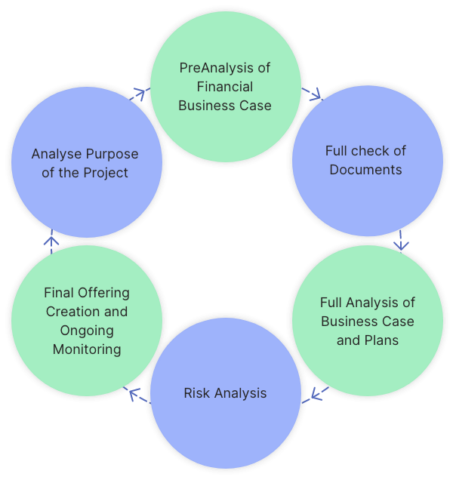Due Diligence
To remain competitive in today’s environment, organisations need to be agile and efficient. Hence, to achieve organisational business goals, sometimes collaborations and partnerships are needed, resulting in an intricate business relationships that can be full of risks.
Whether a company is seeking to invest in a promising enterprise, form a joint venture, engage a vendor, or take on a large client, organisations need to conduct due diligence. It is done to ensure that the prospective business partners possess the requisite capabilities to fulfil their commitments.
Additionally, to protect their own reputation, organisations need to ascertain if these prospective business partners have a history of poor performance or reputational issues (political or organised crime connection). Hence, due diligence is necessary to save your company from undesirable consequences, in case, if it decides to associate itself with such businesses.
Get in Touch
What is Due Diligence?
Due diligence is an act of performing background checks, screening and other verification on an entity to ensure that they are properly risk-assessed before any business relationship is started with them.
A new business partnership with individuals or organisations without fully knowing their past and present business dealings can expose an organisation to unpredictable risks, fines, and lawsuits.
Elements of Due Diligence
Financial - In financial due diligence, an organisation’s financial data is analysed to identify risks, current financial status and future income forecast.
Technical - In technical due diligence, an organisation’s technical capability to deliver the service/product is reviewed, professionals analyse skill sets, quality, timelines, resources, and potential risks. This is done to ascertain any future requirements to improve and close high-risk loopholes.
Commercial - In commercial due diligence, an organisation’s existing market position, growth potential, market value etc are evaluated. Professionals determine long term feasibility of the organisation by analysing business plans, goals, customer base and market trends.
Legal - In legal due diligence, it helps avoid unforeseen but preventable problems. It is complex and time consuming, as it depends on external sources such as Ministries or other regulatory authorities associated with formation of companies. A lot of information is not generally made available on public platforms for example, an organisation could be facing lawsuits or there could be legal process being executed.


Due diligence is performed on different entities and they are:
Customer - If your organisation enters into an agreement to provide services to another entity, it is important to carry out customer or client due diligence. A customer/client due diligence is important to determine whether the company is authentic, and not involved in any malpractices, such as money laundering, human trafficking, or funding any terrorist group. Even if the situation may not be so drastic, it helps for concluding that the client has a good reputation and is financially stable.
Vendor - Vendor due diligence is done when an organisation is planning to partner with another organisation. Since the vendor becomes an integral part of the smooth functioning of the organisation, it is important to ensure that the practices followed internally are acceptable to the ‘code of conduct’ that is followed by sourcing organisation.
Partnering/Merging/Acquisition - The due diligence is to be performed when an organisation is planning to acquire or merge with another organisation. It reassures that their potential prospects are financially stable and present their acceptable level of risks.

